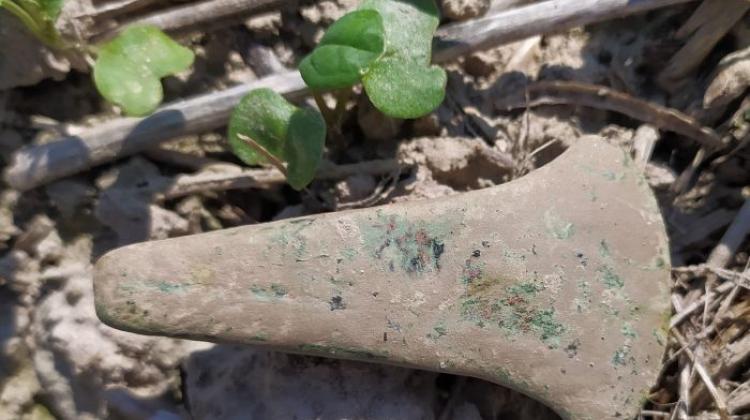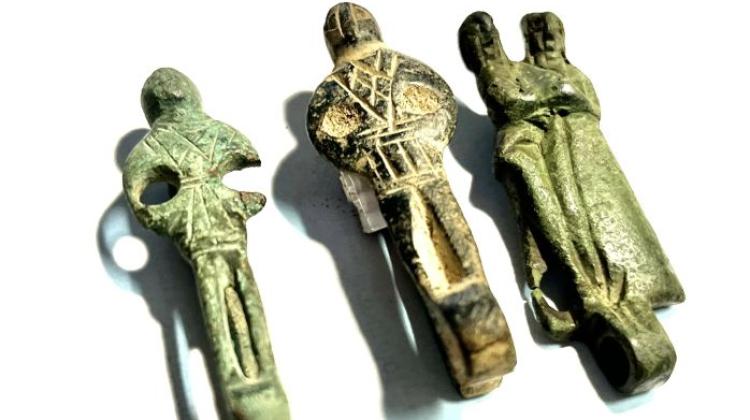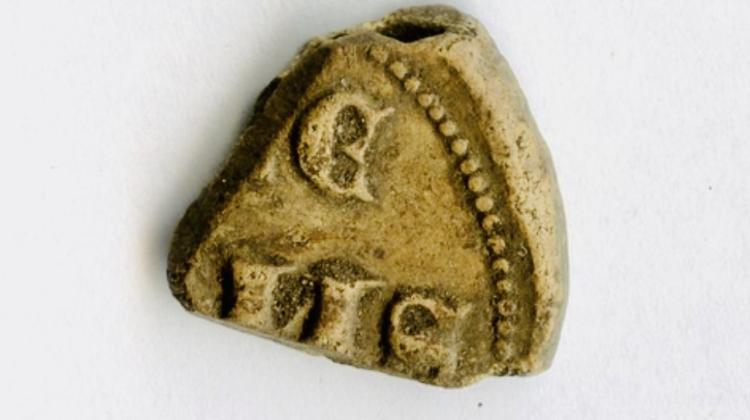Archaeologist from the University of Warsaw wins a prestigious ERC grant
 Photo: Fotolia
Photo: Fotolia
Archaeologist from the University of Warsaw Dr. Artur Obłuski received a prestigious grant from the European Research Council - the University of Warsaw informed Friday. He will use the EUR 1.5 million grant to analyse the fall of the Christian kingdom of Makuria in medieval Nubia.
Dr. Artur Obłuski is the first archaeologist in Poland to receive the most prestigious European research grant. The researcher works at the Kazimierz Michałowski Research Centre in Cairo of the Polish Centre of Mediterranean Archaeology of the University of Warsaw.
The European Research Council (ERC) awarded him a "Starting Grant" of nearly 1.5 million euros. As part of his project, the archaeologist will analyse the fall of the Makuria kingdom in medieval Nubia and the emergence of a new community in its capital.
Artur Obłuski devoted his doctoral dissertation to the rise of the kingdoms in medieval Nubia. "Now I will focus on the fall of these kingdoms and the emergence of new communities" - said the researcher quoted in the press release sent to PAP.
"After the fall of Makuria, which was one of the largest territorial states in the Middle Ages, the size of today\'s territories of Spain and France combined, a small kingdom was established in the area of its capital, which had extensive trade relations with both the Far East and Europe" - continued Dr. Obłuski. "I will follow not only the disintegration of one state and the formation of a new social organism, but also a religious transition. Medieval Nubian states were Christian, and the new kingdom in Dongola was a Muslim community" - he noted.
Dongola was located in present-day Sudan. As the capital of Makuria, it flourished between the ninth and the thirteenth centuries. Even later, in the beginning of the fifteenth century, it still had a dozen or so, perhaps even several dozen residents.
According to Dr. Obłuski hypothesis, despite the fact that the royal court moved out of Dongola in 1364, part of the city\'s community remained and interacted with the Islamic tribes flowing into the area.
"I would like to explore the nature of this interaction: whether it was a conflict or an agreement, due to which the new state could have formed so quickly - in 100 years - and achieve a high level of development" - the archaeologist explained.
During the research project, Dr. Obłuski\'s team will use state-of-the-art research methods combining such fields as archaeology, physics, biology and chemistry. Geophysical research and solid isotope research will be used to explore the history of humanity.
A large part of the research in the project "Urban Metamorphosis of the community of a Medieval African capital city" will be conducted in the field. Over the 4 years of the project, the research group will spend a total of 16 months in Sudan. The researchers will also visit the Ottoman Archives in Istanbul - they will be the first researchers to search for documents related to Dongola there.
The ERC grants funding for three major types of projects lasting up to 5 years. Starting Grant (up 1.5 million euros) is for researchers from 2 to 7 years after obtaining doctoral degree, Consolidator Grant (up to 2 million euros) - for scientists from 7 to 12 years after doctorate, and Advanced Grants (up to 2.5 million euros) is awarded to accomplished scientists who conduct their own research. In addition, scientists who have already won a grants from the ERC can apply for a Proof of Concept grant (up to 150 thousand euros) to develop their ideas for market needs. (PAP)
kflo/ ekr/ kap/
tr. RL
Przed dodaniem komentarza prosimy o zapoznanie z Regulaminem forum serwisu Nauka w Polsce.


















